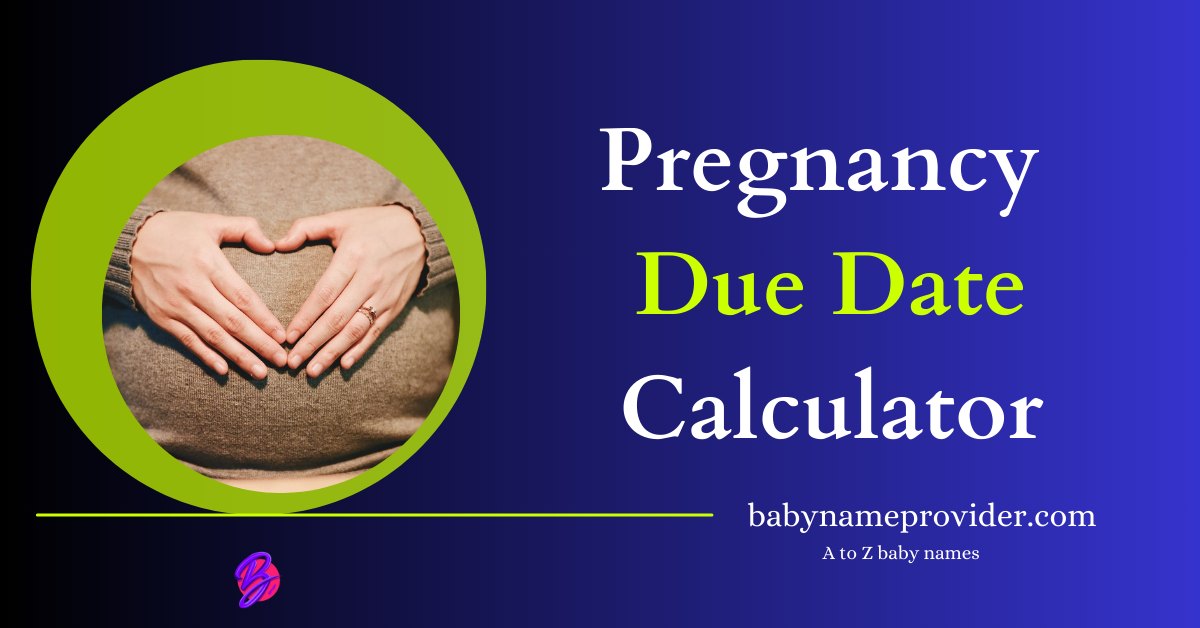Estimated Due Date
First Trimester
Weeks 1-12: Your baby is rapidly developing, and you might start experiencing early pregnancy symptoms.
Second Trimester
Weeks 13-26: Your baby grows larger, and you might feel the first movements. This is often the most comfortable trimester.
Third Trimester
Weeks 27-40: Your baby continues to grow and develop, preparing for birth. You might feel more uncomfortable as your due date approaches.
Finding out what you’re expecting is an exciting time, filled with joy and anticipation. One of the first questions that comes to mind is, “When is the baby due?” Knowing your due date helps you prepare for the arrival of your little one. This is where a Pregnancy Due Date Calculator becomes incredibly useful.
What is a Pregnancy Due Date Calculator?

Pregnancy due date calculator is an online tool designed to estimate what day your baby is likely to be born. By inputting the first day of your last menstrual period (LMP) and your average cycle length, the calculator provides an estimated due date based on a standard 40-week pregnancy.
How Does It Work?
The pregnancy due date calculator uses a simple formula:
- First day of your last menstrual period (LMP): This is considered the first day of your pregnancy.
- Average cycle length: Typically, it is around 28 days, but this may vary from woman to woman.
To estimate your due date, the calculator adds 280 days (40 weeks) to the first day of your previous menstrual cycle. This method is based on the assumption that ovulation occurs approximately two weeks after your period starts.
Why Use a Pregnancy Due Date Calculator?
- Planning and preparation: Knowing your due date helps you plan prenatal care appointments, baby showers, and maternity leave.
- Health monitoring: Regular checkups and tests can be scheduled as appropriate to monitor your baby’s growth and your health.
- Mental preparation: Having an estimated due date gives you and your partner time to mentally prepare for the new arrival in your family.
How Accurate is the Pregnancy Due Date Calculator?
While the pregnancy due date calculator provides a good estimate, it’s important to remember that only about 5% of babies are born on their exact due date. Most babies arrive two weeks before or after the expected date. Factors such as the length of your menstrual cycle, the exact time of ovulation, and individual pregnancy status can affect the accuracy.
Tips for Using a Pregnancy Due Date Calculator
- Use the first day of your last menstrual period (LMP): This is important for the accuracy of the calculation.
- Know your cycle length: If your menstrual cycle is longer or shorter than the average 28 days, adjust the calculator accordingly.
- Consult your healthcare provider: While the calculator gives a good estimate, your healthcare provider will provide more accurate information through ultrasound and other prenatal testing.
Conclusion
The pregnancy due date calculator is a useful tool for expectant parents, providing an estimated date to look forward to. It helps in planning, preparing and ensuring the health and well-being of both mother and baby. Remember, each pregnancy is unique, and while the calculator provides a useful estimate, your healthcare provider will guide you through the journey with personalized care and advice.
Enjoy the joy and excitement of this journey, and use the pregnancy due date calculator to make the most of your pregnancy experience. Happy planning and congratulations for your upcoming bundle of joy!
If you want baby names then you can check our website. (Click)
If you want names in video format then you can watch it here (Click)






